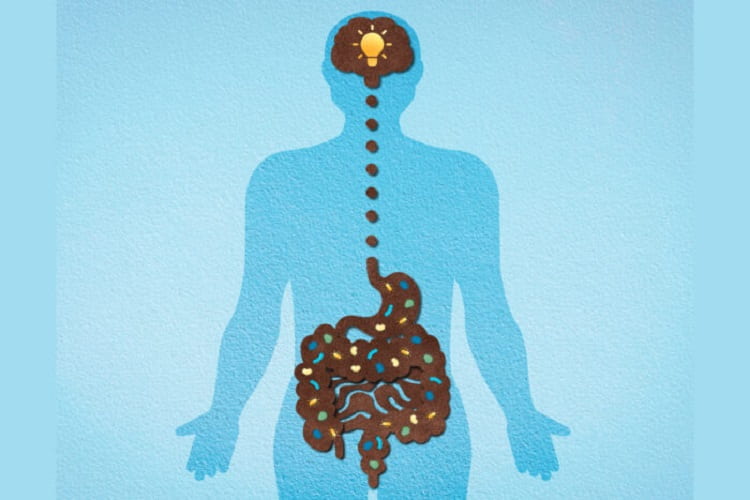People in the earliest stage of Alzheimer’s disease — after brain changes have begun but before cognitive symptoms become apparent — harbor an assortment of bacteria in their intestines that differs from the gut bacteria of healthy people, according to a study by researchers at Washington University School of Medicine in St. Louis.
The findings, published June 14 in Science Translational Medicine, open up the possibility of analyzing the gut bacterial community to identify people at higher risk of developing dementia, and of designing microbiome-altering preventive treatments to stave off cognitive decline.
“We don’t yet know whether the gut is influencing the brain or the brain is influencing the gut, but this association is valuable to know in either case,” said co-corresponding author Gautam Dantas, PhD, the Conan Professor of Laboratory and Genomic Medicine. “It could be that the changes in the gut microbiome are just a readout of pathological changes in the brain. The other alternative is that the gut microbiome is contributing to Alzheimer’s disease, in which case altering the gut microbiome with probiotics or fecal transfers might help change the course of the disease.”
The idea of studying the connection between the gut microbiome and Alzheimer’s disease came together at a youth soccer game, where Dantas and Beau M. Ances, MD, PhD, the Daniel J. Brennan Professor of Neurology, chatted while their children played. Ances treats and studies people with Alzheimer’s disease; Dantas is an expert on the gut microbiome.
Scientists already knew that the gut microbiomes of people with symptomatic Alzheimer’s differ from the microbiomes of healthy people of the same age. But, Ances told Dantas, nobody had yet looked at the gut microbiomes of people in the critical pre-symptomatic phase.
“By the time people have cognitive symptoms, there are significant changes that are often irreversible,” said Ances, the other co-corresponding author. “But if you can diagnosis someone very early in the disease process, that would be the optimal time to effectively intervene with a therapy.”
